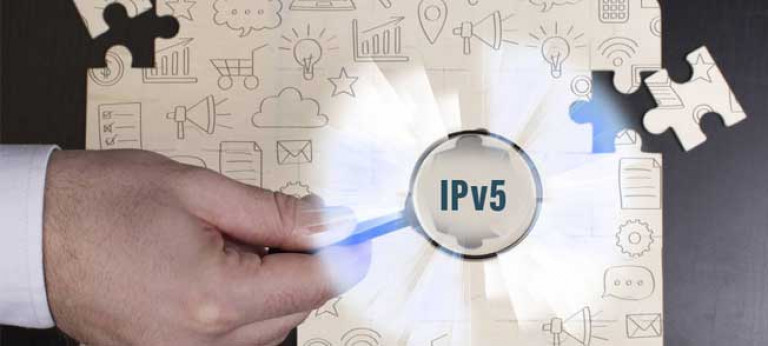Why is there no IPv5! What happened to IPv5?
-
Posted at 2020-03-10 11:27:49
-
By Prefixx Team

The age of the Internet was at a pretty nascent stage in 1970. Several internet protocols were being developed to set guidelines for internet usage and govern how information packets containing loads of data should be sent over a network. In this context, several internet protocols like IPv4 and IPv6 are developed and brought into usage in the public domain. In the middle, another internet protocol IPv5 was developed but never got released into the public domain.
What is IPv5?
There are valid reasons for not adopting IPv5 as a standard internet protocol. Before going deep into the reasons let us analyze what is IPv5 first. The IPv5 was the 5th version of the Internet protocol that was developed to stream voice data and video. The IPv5 was collectively developed by Sun Microsystems, Apple and NeXT on an experimental basis. Before it could be brought into the public domain, they came up with another version of Internet protocol called IPv6. The new version of Internet protocol came with unlimited IP addresses and gave a fresh start to the protocol. IPv6 triumphed over IPv5 hands down since it had its 32-bit limitations.
Why IPv5 is not available?
Before IPv5 came into existence, there was IPv4. IPv4 used 32-bit addressing and allowed only 4.3 billion addresses. As soon as more companies and individuals started accessing the Internet globally at a rapid pace, these addresses were soon exhausted. The last blocks of IPv4 addresses were allocated in the year 2015 by the Federal Government. Since IPv5 also used 32-bit addressing, the companies thought that it would again limit the ability to generate IPv5 addresses and hence decided against adopting it as a standard protocol.
The abandonment of IPv5 from all these major tech companies discouraged others from using IPv5. Today, even after developing IPv6, we see IPv4 in the market but IPv5 has not come into existence.
IPv4, IPv5, IPv6
IP stands for Internet protocol. IP enables devices to connect to the internet. It has its own set of rules through which it governs how data travels from one device to another. The internet protocol identifies devices through IP addresses that are unique to each device.
In the beginning, IP was part of TCP/IP. With the development of IPv4, IP was separated from TCP/IP.
IPv4
If you see IPv4 in technical terms, you would see the numbers 157.240.20.35. The numbers are anywhere between 0 to 254 and are separated by dots. The IPv4 could allow up to 4.3 billion addresses i.e. 4, 294, 967, 296 to be precise. This number might look overwhelming but today there are more devices in use than this staggering number. This forced internet service providers to reuse their IPv4 addresses. Today, most of the service providers have started selling IPv6 addresses.
IPv5
As explained before IPv5 never came into existence apart from a few experimental usages. It was called ST, Internet Stream Protocol, in the beginning, and it was mainly designed to stream voice and video. Before it was abandoned, IPv5 was comprehensively tested and various backbones were built. It was also released on several OS’s to check its compatibility. The only hurdle was it couldn’t generate enough IPv5 addresses. Other than this, it was far superior to IPv4.
IPv6
There is always talk of IPv4 vs IPv6 not IPv4 vs IPv5. As compared to IPv4’s 32 bit addressing, IPv6 uses 128 bit addressing. IPv6 can be shown technically by an example: 2001:0db8:0000:0042:0000:8a2e:0370:7334. You can see that it has 8 groups and each group has four hexadecimal digits and they are separated by semicolons. Compared to IPv6 the IPv4 has only four groups separated by dots. IPv6 provides more combinations of IP addresses amounting to 10 to the power of 28 times. IPv6 also has increased security. With its IPsec (Internet Security Protocol), it encrypts the data by authenticating the sender. The world is very slow in embracing IPv6. The simple reason being, they don’t want to spend extra money to buy IPv6.
